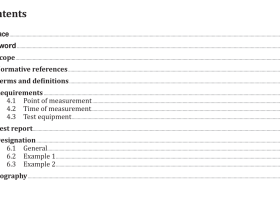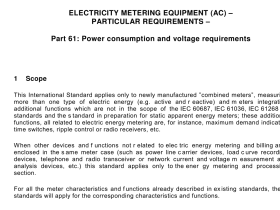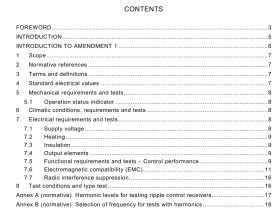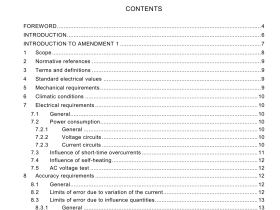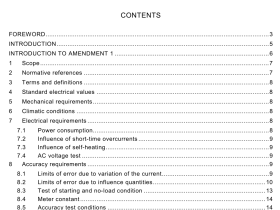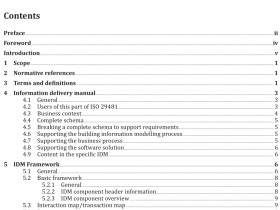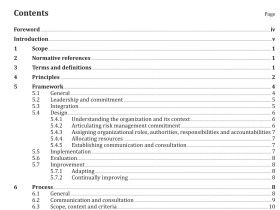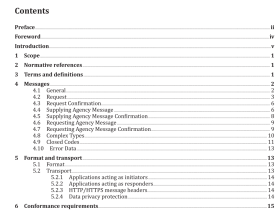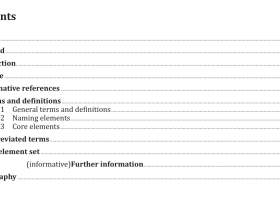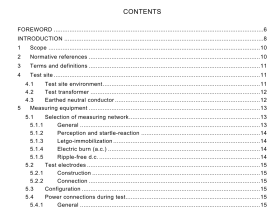AS ISO 10667.1 pdf download

AS ISO 10667.1 pdf download.Assessment service delivery — Procedures and methods to assess people in work and organizational settings
1 Scope
This part of ISO 10667 establishes requirements and guidance for the client working with the service provider to carry out the assessment of an individual, a group, or an organization for work-related purposes. This part of ISO 10667 enables the client to base its decisions on sound assessment results. This part of ISO 10667 specifies the requirements of the client with respect to: a) the needs and rationale for using assessments; b) the conditions under which the assessment will be used; c) the decisions about the assessment approach together with the implementation and evaluation of assessment procedures and methods; d) the required competence and professionalism of the client’s employees who are involved in the assessment process; e) the decisions about the access, use, and storage of assessment results and subsequent reports; f) organizational-related decisions, e.g. training, team building, ascertaining organizational culture or morale. This part of ISO 10667 also specifies assessment methods and procedures that can be carried out for one or more of the following work-related purposes made by or affecting individuals, groups or organizations, including, but not limited to: — employment-related decisions, e.g. recruitment, selection, development, appraisal, promotion, outplacement, succession planning and reassignment; — career-related decisions, e.g. recruiting, coaching, guidance, vocational rehabilitation and outplacement counselling; — group decisions, e.g. training initiatives, team building, etc.; — organization decisions, e.g. restructuring, morale and culture initiatives, mergers and acquisitions, etc. No technical professional standards form part of ISO 10667. However, the quality of assessment procedures and methods should be considered in relation to the purposes of the assessment, the relevance of the measures involved, their validity.
2 Terms and definitions
For the purposes of this document, the following terms and definitions apply. 2.1 agreement specification of the terms and conditions of the engagement between the client and the service provider Note 1 to entry: Examples include, but are not limited to, details of the service or products to be delivered, duration, scope, ownership and appropriate use of intellectual property and costs. 2.2 assessment systematic method and procedure for ascertaining work-related knowledge, skills, abilities, or other characteristics of an individual or group of individuals, or the performance of an individual or group of individuals Note 1 to entry: Assessment has outcomes and consequences that can be appraised and used to evaluate its utility. Forms of assessment can include, but are not limited to, structured application forms; biographical data inventories; tests of general and specific abilities; self-report inventories and other instruments relating to competencies, personality, motivation, attitudes, values, beliefs, interests, etc.; structured interviews; individual problem-solving tasks; group exercises; simulations and work samples; group and organizational level measures; employee surveys; multi-rater feedback; and performance evaluations, e.g. assessor interpretations, supervisor performance ratings, etc. 2.3 assessment administrator person or organization having operational responsibility for the administration of assessments Note 1 to entry: Tasks of the assessment administrator include, but are not limited to, face-to-face test administration; setting up online assessments; remote monitoring; management of activities within an assessment centre; and other administrative tasks. In some countries assessment administrators are referred to as “test proctors”, “test assistants” or “monitors”. Assessment administrators can be employees of the service provider or the client, or be third parties contracted for the purposes of the assessment.2.4 assessment participant individual being assessed, whether for himself/herself or for an organization, either individually or as part of a group Note 1 to entry: An assessment participant is an individual, including, but not limited to, a job applicant or candidate; an employee of the client who is a candidate for promotion or is being assessed for some other internal organizational purposes; any individual undergoing an assessment, providing information or being given career guidance for his or her own benefit. 2.5 assessor person or organization responsible for evaluating and interpreting an assessment participant’s performance on the assessment tasks and providing appropriate reporting and feedback to assessment participants and the client Note 1 to entry: Assessors are competent to make decisions about the use and interpretation of assessment procedures. In relation to psychological testing, in some countries they are referred to as “test users” to distinguish them from “test proctors”, “test administrators” or “monitors”. Assessors can be employees of the service provider or the client, or third parties contracted for the purposes of the assessment. 2.6 client individual or organization who arranges with a service provider to deliver the assessment and related components of the assessment service provision
